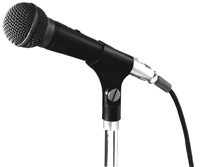Libraries at University of Nebraska-Lincoln

University of Nebraska-Lincoln Libraries: Presentations
Date of this Version
3-5-2020
Document Type
Article
Citation
Slides of a presentation given at the IFLA SIG Library Publishing Midterm Meeting, March 5-6, 2020, at Oslo Metropolitan University in Oslo, Norway.
Presenter: Sue Ann Gardner
Authors: Sue Ann Gardner and Paul Royster
Date of presentation: March 5, 2020
Abstract
A team of four people administers the UNL institutional repository (https://digitalcommons.unl.edu), which is one of the largest (109,000-plus full text items) and most-accessed (over 62,000,000 downloads) in the United States. The team also administers a robust library publishing program with over 80 scholarly monographs and 12 peer-reviewed journals. A recent focus of the program has been open educational resources, partnering with scholars to identify or create free online learning objects.
This talk will include details about how such a small team accomplishes so much. Staffing, task assignment, workflow, author relations, reader relations, education, administration, policy generation, platform management, and other aspects of operations will be covered for each of the content areas: repository, monograph publishing, journal publishing, and open educational resource generation/facilitation. Representative examples of resources from each area will be highlighted.
It will be argued that a small program can actually be more effective than a larger one and that, as a consequence, costs can be kept to a minimum. A main key to success is proper staffing by professionals with high level skills who have a desire to make a positive difference. In the case of the program at UNL, the choice of platform was also a key determinant in success. These and other aspects will be discussed in detail.
Included in
Book and Paper Commons, Digital Humanities Commons, Online and Distance Education Commons, Publishing Commons, Reading and Language Commons, Scholarly Communication Commons, Scholarly Publishing Commons, Technology and Innovation Commons


Comments
Copyright 2020, the authors. Used by permission.
Readers have the right to re-use the content for non-commercial purposes.